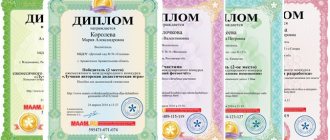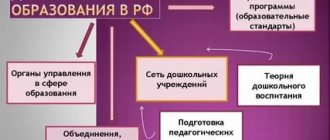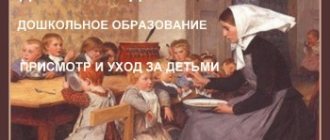It is never easy to do work with quality and with soul. Especially if it concerns the education and upbringing of children. Anyone, even the most talented teacher, needs like-minded people who can encourage each other and help with valuable advice. To solve such problems, professional communities are created, one of which was the nsportal ru project.
Social network of educators ns portal (“Our Network”) is a resource for professional communication of teachers working at all levels of the educational process (from kindergarten to university). The project provides the participant with the opportunity to create their own mini-site, exchange useful information, ideas, methodological developments with colleagues, learn the latest news, relax and laugh at funny situations that often happen in the lives of teachers. More than three hundred thousand participants have already joined the network , posting almost two million educational materials! In addition, the best works are duplicated in the “nsportal.ru” group on VKontakte.
Registration on a social network
If an account in “Our Network” has not yet been created, then you must go through the procedure of registering a new user. It is simple and does not require much time.
- First, the user chooses a login . It is best if it includes the full name and surname of the participant. This combination is unique (i.e. the chance of matching another person’s login is small) and simplifies the search for the desired network member.
- Next, fill in the field with the email address to which notifications about project events will be sent.
- Then you need confirmthat you are not a robot and enter the answer to the question in the appropriate field. There is a small nuance here - the answer must be entered in words, not in numbers (otherwise the system will consider it incorrect).
Installing games downloaded from the Internet
After completing the above steps, a letter is sent to the specified address with a link to complete registration. After clicking on it, the user finds himself on his profile page.
Here the user specifies a password and configures the function of sending notifications by email. There is also an opportunity to upload a photo , greet colleagues, etc.
The profile also displays information about the user’s current activity – alerts, messages, number of friends, etc.
There is an opportunity to create your own blog , thanks to which the author can share thoughts and ideas with fellow professionals, rather than with a diverse audience of the Internet.
Password recovery
To recover your account password on the NS portal, go to https://nsportal.ru/user/password. Enter your username or email address in the control line, and solve the example on the screen to protect against robots.
Finally, click the “Send password by e-mail” button - and the lost data will be sent by e-mail.
How to create a mini-site
A popular function of Our Network is the creation of personal pages (mini-sites). The mini-site accumulates the author’s contact information, his areas of interest and achievements, useful links, teaching materials, as well as links to groups and publications on the network. To create your own mini-resource, select the “My mini-site” button in the menu on the left side, and then fill in the profile fields .
For the convenience of the user of the national portal, there is a menu on the left side of the page. It allows the participant to fill out and edit his website, communicate in groups and forums, view the news feed, etc.
Account registration
To create a personal account on the NS portal, go to the official website nsportal.ru and click the “Registration” tab in the left column. After this, a small registration form will open on the page https://nsportal.ru/user/register, which you need to fill out:
- Indicate the user name - for this it is recommended to use the last name, first name and patronymic, since these data will be indicated in the certificate of creation of the mini-site.
- Enter a valid email address.
- Solve the example indicated on the screen and write the answer in the special field.
- Finally, click the “Registration” button.
After this, the user will have his personal account opened on the NS portal. For full-fledged work, he needs to indicate his personal information - the full name of the educational institution, position held, teaching experience.
Material library
The library of the network of educators is quite voluminous and contains:
- educational materials for all disciplines;
- recommendations for working with parents;
- scenarios for holidays (including sports);
- developments in the management of educational institutions;
For ease of searching for materials, the library is structured by educational level :
- preschool (“Kindergarten”);
- school (with a separate subsection for primary school);
- secondary (primary and secondary vocational education);
- higher education (HEI).
What is the ntuser dat file and what data does it contain?
After moving to the section of interest, the user is presented with a form for searching and sorting works.
For kindergarten, the INES portal for educators provides the ability to search by the name of the material, type of activity and age group. School developments can be filtered by name, subject, type and class. Materials for vocational education can be searched by name, field of study and type, and for higher education - in the sections “Science” and “Type of material”.
Account functionality
After registering a personal account on the NS educational portal, teachers gain access to the following functions:
- Create your own portfolio.
- Post your articles, scientific publications and other works.
- Post information about your educational institution and students.
- Share news, opinions and feedback with other educators.
- Communicate with other participants on the online forum.
- Use the online library of pedagogical literature.
Authorized users can receive an electronic Certificate of creation of a mini-site and a Certificate of publication in electronic media. The cost of such documents is 90 rubles.
Search the site and audio recordings
In addition to the listed functions of the enes portal resource, other opportunities . For example, the “Site Search” button, thanks to which the search is carried out in all sections of the library.
“Audio recordings” are highlighted as a separate menu item. Having entered the section, to search for the necessary materials, the user can use a filter containing the fields: “Title”, “Section” and “Abstract”.
Thus, the social network of educators nsportal.ru provides interested and creative teachers with new opportunities for professional communication, searching for necessary information and sharing experiences, and therefore helps make the educational process interesting and modern.
MAGAZINE Preschooler.RF
A unified environment (community) for interaction between preschool education workers: a new modelThe modern system of preschool education is characterized by a targeted focus on the harmonious development of the child. In accordance with this, preschool education should be a flexible and variable system that implements the state educational order and meets the needs of consumers of educational services (namely, preschoolers and their parents). One of the main components of this system is effective training and constant professional and creative growth and development of educators. This is of particular relevance in connection with the introduction of the Federal State Educational Standard for Preschool Education (hereinafter referred to as the Federal State Educational Standard for Preschool Education) into the work of Russian kindergartens.
One of the priority models that ensures the training, professional growth and development of educators to meet high standards of professional work supported at the state level is the creation and development of network professional communities. Today, practically such communities have been created in almost all regions of our country. Examples are all-Russian associations (“Methodists”, “Social Network of Education Workers”, “Network of Creative Teachers”, “Education Resources”, etc.), and large regional communities (network community of preschool teachers of the Kamchatka Territory “Kolobok”, Association of Teachers of Preschool Educational Organizations of the Moscow Region, Community of Preschool Teachers “Our Bee” of the Vladimir Region and others), and city associations, and even communities created on the basis of a separate kindergarten. However, when analyzing their activities, the authors of the article identified the following problems that hinder their further development and effectiveness, namely:
- a number of communities do not have websites on the Internet;
- lack of interaction between associations of different levels and profiles;
- membership in the professional community is superficial, there are no benefits and advantages, both materially and socially and professionally (participation in competitions, organization of exhibitions, methodological publications, etc.);
- lack of interaction between professional communities and educational authorities, scientific sites, public organizations, parents;
- lack of communities aimed at uniting employees of private kindergartens and centers.
Thus, it is urgent to create a single professional association that would allow solving the problems arising from the above problems. The model of the created network community should become a platform for representing the interests of the educational space of specialists involved in the field of preschool education (teachers, educators, methodologists, psychologists, psychophysiologists, preschool directors), together with interested parties (parents, representatives of the public), and pursue purely practical goals . The model of a network professional community of preschool education workers developed by ANO “Status” at the request of the Russian Ministry of Education and Science is aimed at creating an All-Russian Association of Professional Network Communities of Participants in the Preschool Education System (hereinafter referred to as the Association). The key direction of this model is the creation of an association of regional and municipal network communities that open up fundamentally different opportunities for education, communication and have serious pedagogical potential in state and public administration. The main approach is that today there are many fairly strong professional communities of preschool education workers in the country. The approach is based on the following proposition: it is inappropriate to oppose existing communities with something new, or to create competition in this environment. The main goal is to integrate existing communities of various levels into a single structure, which will be reflected both in network interaction (based on a specialized electronic resource) and in face-to-face participation, securing the status of a member of this association, which provides certain benefits and advantages. The association will be aimed at achieving the following goals:
- stimulating the diversity of municipal and regional professional network communities with their specificity and flavor, but under uniform operating standards;
- creation of effective tools for professional growth, development of special competencies among all specialists involved in the field of preschool education;
- involving parents and the general public in the process of managing preschool education (state-public management);
- ensuring public assessment of the quality of work and professionalism of kindergarten teaching staff (rating system, evaluation of methodological developments and experience of teachers and directors, etc.);
- support and discussion by participants of new educational initiatives at the all-Russian level;
- development and provision of a package of benefits aimed at social protection of Association members.
The members of the Association will be:
- managers and employees of preschool educational organizations;
- parents and other family members of preschool children;
- lawyers in the field of educational law (they can provide advice to other participants on issues of protection of rights, educational, labor legislation. They can also participate in the examination of draft laws and other regulatory documents);
- representatives of various non-profit organizations in the field of motherhood and childhood;
- representatives of the non-state sector of preschool education, incl. a separate category - young businessmen starting their own business in the preschool education services sector;
- specialists from state and public education management bodies;
- specialists from scientific, experimental, and internship sites in the field of preschool education;
Since the Association is, in fact, a community of communities, the participants must also be the responsible persons (coordinators) of the municipal or regional professional community, which will represent the interests of the network association in the coordinating council of the Association, as well as broadcast important information on the portal of the network community. Tutors (experts) also participate in the Association - they provide consultations to municipal and regional communities using the functionality of the online community portal. Representatives of the federal center for distance learning, resource center, as well as representatives of publishing houses, scientific organizations, interested commercial organizations and foundations that provide support for one or another innovative form presented on the community portal are also invited to participate in the Association. The last, no less significant category of participants are representatives of trade unions of teachers of preschool educational organizations. The breadth of the above goals and the diversity of participants who will be involved in the community dictate the need to create a single information field that would ensure this interaction at the most effective and modern level. Such an information field is a professional network community - an information resource that will support the activities of the Association. In the information environment of the Association, there are three hierarchical levels of interaction: strategic, tactical and operational. At the strategic level, professional communities (regional or municipal) set the tone for interaction. It is advisable to introduce a governing (coordinating) body of the Association, representatives to which are elected from each of the professional communities included in the association from regions and municipalities (Coordination Council) with the development of appropriate regulatory support. At the tactical level, the main task is performed by the tutors (or experts) of the Association. Their task is to provide organizational and pedagogical support for the professional activities of educators, methodologists, and managers in preschool educational institutions. Tutors determine the set of information necessary for organizational and pedagogical support of kindergarten teachers and methodologists, create a knowledge base on programs for training, education and development of preschool children, as well as changes in legislation at the federal level. They provide methodological and advisory support for the work of the community itself. The mechanism for selecting tutors can be based, among other things, on the rating assessment of community members (their level of competence, their practical experience, the effectiveness and innovativeness of their pedagogical developments). Those participants who get the highest ratings become tutors. And, finally, the operational level - where the main ones are the educators themselves, kindergarten methodologists, parents, executive authorities, non-profit organizations and foundations and other categories of participants. Representatives of this level work with the information presented in the system, exchange experience, take distance learning courses, evaluate programs and methods of working with preschoolers, the developments of other participants, and take an active part in the formation of proposals to improve the quality of the preschool education system. It is advisable to determine the following principles on which the work of the Association will be based: The principle of voluntariness and independence of its members (municipal and regional professional network communities). The online community is semi-closed, that is, joining it is limited by certain conditions, a registration procedure that encourages a new member of the community to take on a social role characteristic of this network. The principle of openness of actions, results, problems, information. In accordance with this principle, the online community has a diversified communication structure, which includes personal contacts in different formats. The principle of mutual trust among participants in the online community. Principle of interaction. The online community allows you to obtain additional benefits through the cooperation of participants to solve specific problems. In accordance with the principle of interaction, there is a process of exchange between participants in the network community of published teaching materials, results of innovative activities, participation in solving problems, conducting public examination at the federal level, the principle of respect for intellectual property. The principle of compliance with ethical standards and rules of interaction. But the main principle of the Association’s work, in fact, should be the activity of its participants. There are a lot of professional communities where participants are simply “readers” waiting for new information messages, but their effectiveness for the participants themselves is low. When implementing the proposed model of a professional community of preschool education workers, one must strive to ensure that the participants are subjects of decision-making and decision-making.
| Next > |




